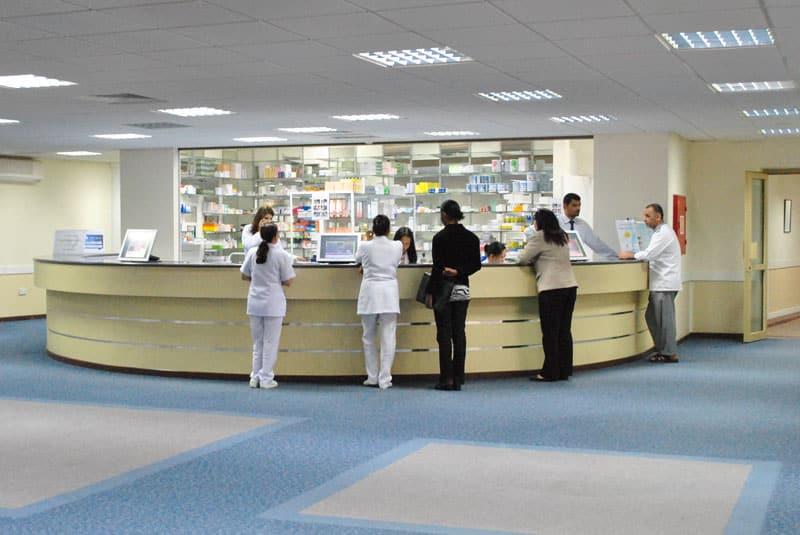The Role of Pharmaceuticals in Hospitals
Pharmaceuticals play a vital role in modern healthcare facilities and patient treatment. Medicines are a core component of hospital operations, as they are needed to effectively treat patients, manage symptoms, and support recovery from illnesses and injuries. All hospitals maintain an on-site pharmacy department to procure, store, and distribute medications to patients based on doctor's orders. Well-stocked pharmacies allow hospitals to have medicines readily available for different therapy areas and medical specialties.
Supply Chain Management of Drug Inventory
Hospital Pharmaceuticals inventories and maintaining adequate stock levels is an important logistical function for hospital pharmacies. They work closely with drug wholesalers and manufacturers to regularly receive shipments of medications. Pharmacists monitor consumption patterns and usage trends to forecast demand. Emergency drug replenishment protocols are also in place in case of sudden shortages. Periodic inventory checks and expiry date validation ensure that only good quality medicines are available for dispensing. Any obsolete or expired drugs are properly disposed of according to hazardous waste guidelines.
Strict Controls on Medication Distribution
To prevent errors and adopt best practices, hospitals enforce strict controlled substance management rules. Medicines listed under Schedules II-V are stored securely in double-locked cabinets with access restricted to selected pharmacy team members. Computerized dispensing systems with password protection further enhance security. Robust documentation requirements like maintaining dispensed quantity records introduce transparency. Regular audits and reconciliations are done to catch any discrepancies in controlled drug inventory levels on time.
Collaboration with Clinical Departments
There is close cooperation between hospital pharmaceutical and clinical departments like emergency, nursing floors and operating rooms. Ward stock arrangements supply common medicines to patient care areas for convenient accessibility. Periodic ward visits by clinical pharmacists help resolve medication-related issues. They also verify doctor's orders, check for interactions and provide drug information support to medical staff. Pharmacist involvement in committees like antimicrobial stewardship and new drug acquisition reduces costs without compromising quality of care.
Ensuring Safety and Quality of Medicines
Maintaining the safety, efficacy and quality of medicines handled is a top priority for hospital pharmacies. Only drugs approved by stringent regulatory bodies are procured from trusted vendors. Upon receipt, there are multiple checks like review of COAs, expiry validation and verification of physical attributes. Ongoing quality testing also monitors stability parameters like potency and dissolution profiles. Strict Standard Operating Procedures are followed during dispensing to avoid errors. Adverse drug reaction monitoring helps detect issues early on.
Pharmacy Automation and Technology Adoption
To enhance efficiency, minimize errors and streamline workflows, many pharmacies incorporate automated dispensing cabinets and robotics integrated with Computerized Physician Order Entry systems. Automated compounding devices prepare IV admixtures and sterile products accurately under aseptic conditions. Advanced analytics capabilities integrated with Electronic Health Records help with formulary management, therapy optimization, and clinical decision support. Ongoing investments in cutting-edge technologies boost pharmacy capabilities and service levels.
Ensuring the availability of quality-assured hospital pharmaceutical is critical for hospitals to deliver effective and compassionate patient care. Well-run pharmacy departments play a central role in healthcare delivery by procuring, distributing and managing medication supplies securely and efficiently across clinical settings. Their efforts backed by rigorous processes help doctors securely prescribe the right treatment and achieve successful health outcomes.
For Deeper Insights, Find the Report in the Language that You want:
About Author:
Priya Pandey is a dynamic and passionate editor with over three years of expertise in content editing and proofreading. Holding a bachelor's degree in biotechnology, Priya has a knack for making the content engaging. Her diverse portfolio includes editing documents across different industries, including food and beverages, information and technology, healthcare, chemical and materials, etc. Priya's meticulous attention to detail and commitment to excellence make her an invaluable asset in the world of content creation and refinement.
(LinkedIn- https://www.linkedin.com/in/priya-pandey-8417a8173/)
